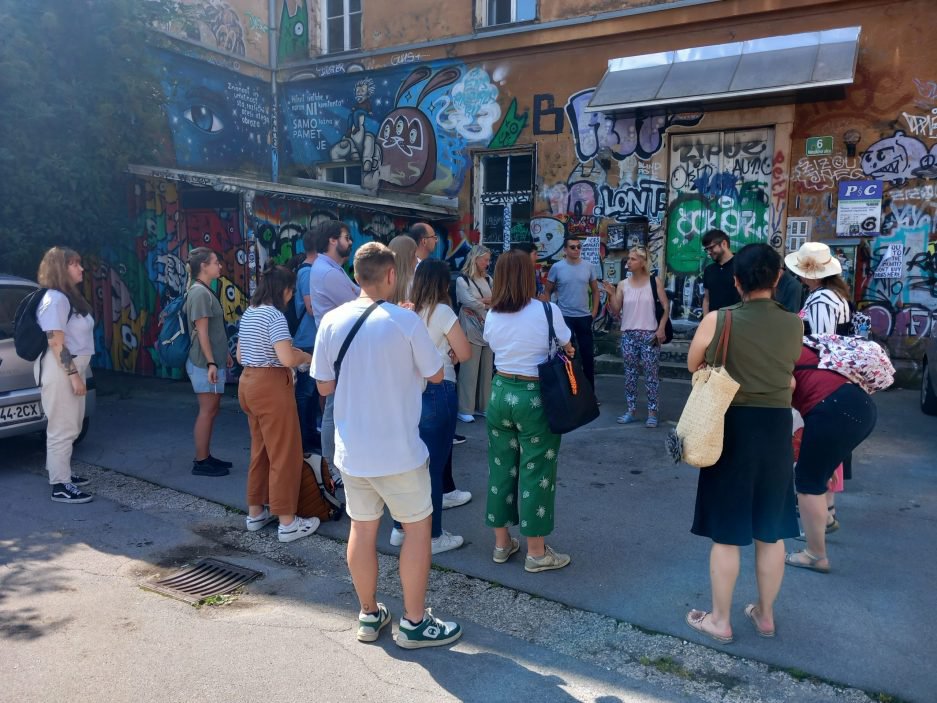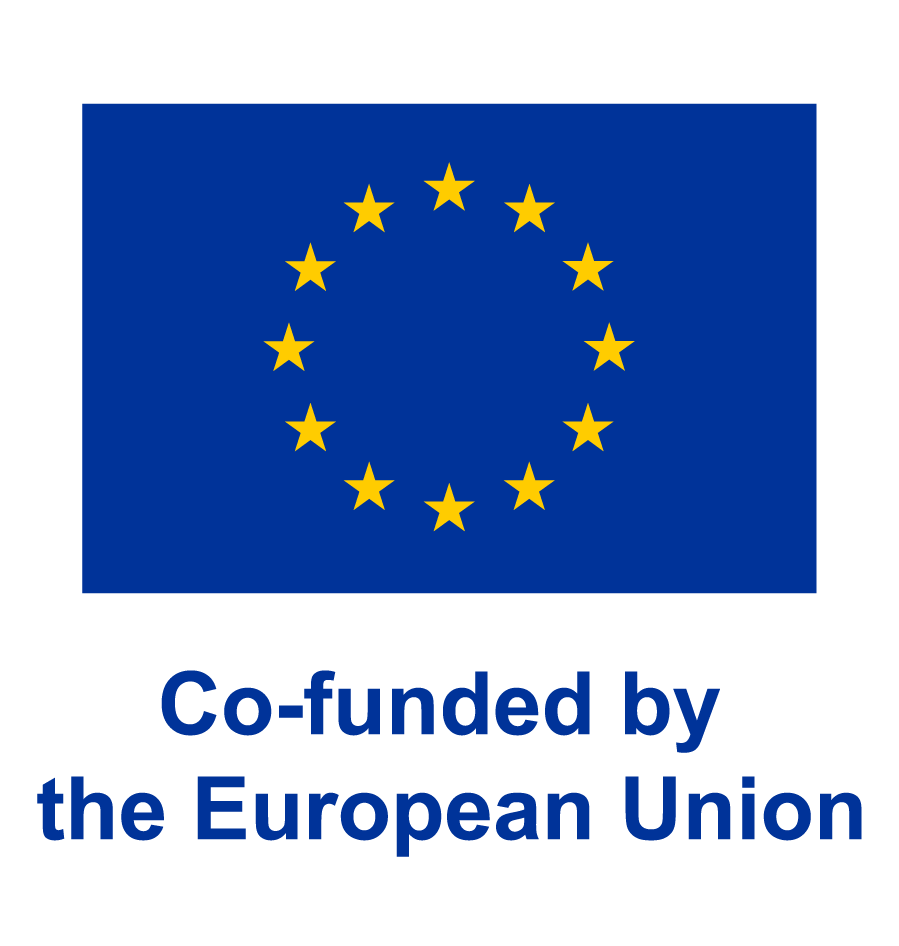Study visit “The 90s: Anti-war activism in Croatia and Slovenia”

Documenta and its partners on the project “Female perspectives on the democratic transitions in the 1970s, 1980s, and 1990s” organized the study visit “The 90s: Anti-war activism in Croatia and Slovenia” in Zagreb and Ljubljana, July 3rd – July 6th, 2023.
Teachers from Bulgaria, Croatia, Italy, Slovenia, and Spain took part in our program to learn more about the history of peace and other civic initiatives in Croatia and Slovenia.
On the first day of the study visit, the participants compared perspectives on democratization processes in different European countries: the transition from socialism to democracy in Bulgaria, the violent dissolution of Yugoslavia and democratic transition in Croatia and Slovenia, the non-institutional democratization in Italy in the 1970s, marked by the „strategy of tension“, and the Spanish transition to democracy from the regime of Francisco Franco after his dead in 1975.
On July 4 the participants met members of the Antiwar Campaign Croatia (ARK) and Volunteer Project Pakrac Vesna Teršelič, Goran Božičević and Vesna Janković.
Goran Božičević presented the historical and social context of the Antiwar Campaign and shared his personal experience of working with volunteers from various contries in Pakrac.
Later, the participants took part in a city walk around several locations in Zagreb connected with the work of the Antiwar Campaign. Vesna Teršelič, one of the founders of the initiative, led the city walk that marked the 32nd anniversary of ARK and the 30th anniversary of the Volunteer Project Pakrac.
In the afternoon the participants explored the archives of ARK and went through issues of ARKzin, the fanzine of ARK. The editor of ARKzin, Vesna Janković, talked about the ideas behind the publication, the variety of topics covered by its authors, and the media context of Croatia during the 1990s.
Together with Vesna Teršelič, Vesna Janković and Goran Božičević the group of teachers discussed the situation of women in Croatia during the 1990s, the feminist initiatives of the time, and the current challenges of democratic backsliding in Europe. The participants also discussed the work and experience of ARK in the context of the war in Ukraine.
On July 5 the group went to Ljubljana for the second part of the study visit. The participants took part in a guided tour of Metelkova mesto, an autonomous cultural center and a squatter settlement in the center of Ljubljana. The participants explored the history of the location and its 1990s transition from barracks of the Yugoslav People’s Army to a place of resistance to violence and artistic expression.
One of the buildings in the complex that previously served as a prison has been renovated and now functions as a hostel. The architect of Celica hostel Janko Rožić led the group through the building demonstrating how architecture depicts the 1990s’ transition „from repression to expression“.
Later that day the group met with Marko Hren, one of the founders of the Peace Institute in Ljubljana, and Tija Jakić from „the 8th of March“ Institute to discuss democratization in Slovenia and contemporary initiatives to protect civil and women’s rights.
The study visit was organized in cooperation between Documenta and Zavod Apis and is a part of the project “Female perspectives on the democratic transitions in the 1970s, 1980s and 1990s”.
The project is co-financed by the European union.

